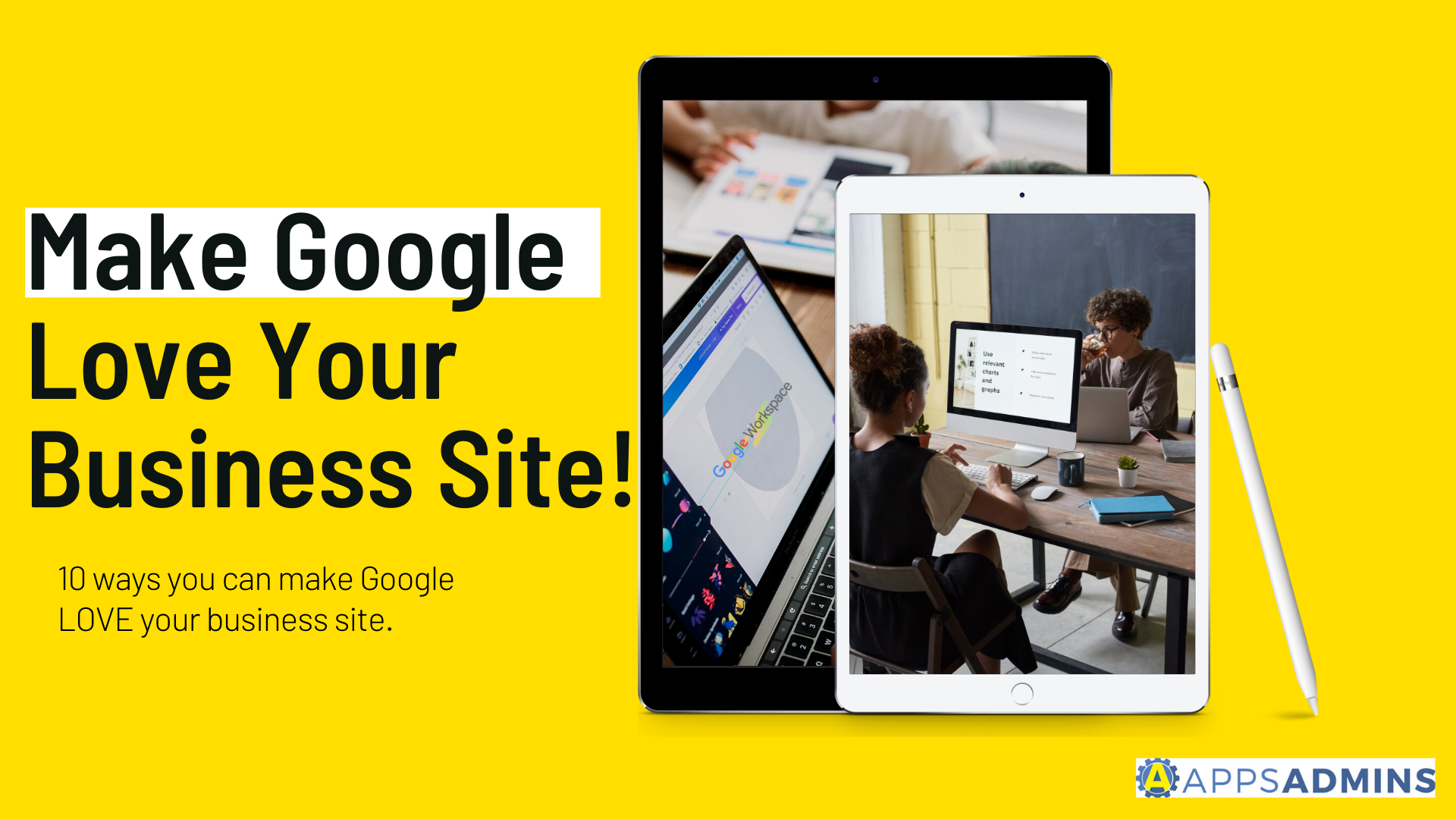G Suite Business Free for 30 Days
Sign up for a Free 30 Day Trial of G Suite Business and get Free Admin support from Google Certified Deployment Specialists.

The Forrester Consulting Report on the Total Economic Impact of Google Apps for Work discusses the ways in which Google Apps for Work is maximizing the ability for a mid-market business or an organization to improve communication, heighten efficiency, streamline decisions, and create a linear history for decision making accountability.
This TEI White Paper from Forrester Includes:
- An executive summary explaining an overview of what improvements can be made while outlining the benefits and costs of improvement.
- Disclosures so you may have an open, honest look at the perspective of the report.
- Total Economic Impact Framework and Methodology so you can understand the process by which the results were tabulated, studied, and analyzed.
- An analysis that explains the details of the research that resulted in the conclusion.
- A financial summary for those who are bottom line driven and cost conscious.
- The Total Economic Impact Overview for those who want to have the beneficial results of Google Apps for Work summarized for them in a way that is concise and clear
If you are tired of the stale system and recurring problems that plague your daily efforts and muddy the confidence your employees have in the structure of the IT monolith currently in place, read on as the results of the Forrester Consulting Report on the Total Impact of Google Apps for Work can be the suite that jump starts your progress.
By installing an email and colaboration platform beneficial to all, the IT professional and internal structure of your company will be favored by the employees and managers at the heart of leading your success.
Google Apps for Work is not just another suite of octopus arms that extends into and thus slows down every part of your company’s IT framework. It seeks, in fact to do the opposite. Google has set out to streamline the efficiency of communication while maximizing the real time access to information from an employee in Beijing, Sacramento, or London.

Not only are there user benefits (access and permanence to data to powerful messaging to a 25 GB email inbox), IT benefits (no hardware or software, intuitive apps, open platform and integration), and business benefits (increased productivity, flexibility, allows focus to be properly placed, and competitiveness within industries), but there are also financial benefits.
Google chose and funded Forrester Consulting to execute a Total Economic Impact (TEI) analysis and study that would build a framework by which it could examine the possible return on investment (ROI) companies may see by adopting Google Apps for Work as the framework for their internal systems.
Who or What is Forrester Consulting?
Forrester Consulting is an independent, objective, research-based firm that provides proactive leaders with studies and information that will assist them in their success. Forrester’s services range in scope from a short strategy session to custom projects. Their services seek to provide business executive and leaders with research analysts who provide expertise and research that meet the needs of your specific business challenges.
Why Should You Trust Forrester's Research?
- The research, commissioned by Google and delivered by Forrester, was never meant to be used as a competitive tool. Google wanted an honest assessment of ROI savings.
- Forrester constructed a framework for assessment that can be executed by almost any other organization or company. The results stemmed from the statistical framework, not from lofty guesses and hopes. Companies of different sizes and values can apply the framework and see if Google Apps for Work is right for them.
- Google did review Forrester and provide feedback, but Forrester maintained complete editorial control over its own study’s findings.
- Google did provide customer names for the interviews but did not participate in interviews.
Forrester conducted interviews with current Google Apps for Work users. From those interviews, they combined the data into a composite company of 12,000 employees and 10,000 Google Apps for Work users. The total financial costs are based upon those numbers.
What are the Benefits of Google Apps for Work?
- Increased collaboration efficiency ($8 million saved) – real-time collaboration, project collaboration, accessible shared files, streamlined business procedures, saved time from 15 minutes to 2 hours per employee per week
- Improved mobility and reduced travel costs ($5.3 million saved) – increased engagement due to instant accessibility over multiple platforms, flexibility in work sites, reduced need to travel to on-site locations for training and meetings
- Cloud-based solution to data storage that reduced legacy IT expenditures ($502,000 saved) – Google’s cloud-based system means a reduced need for on-premises hardware and maintenance, frees up IT professionals to work on more relevant tasks
- New telephony solution resulting in legacy telephony costs savings ($3.2 million saved) – a streamlined platform for conferencing and calling
What are the Costs of Google Apps for Work?
- Software licensing fees - $10 per user per month (includes e-discovery, compliance and MDM)
- Professional service fees - $23 per user over six months, a third-party integrator is suggested for rollout and transition for medium to large companies
- Third party change management costs - $23 per user, ensures high adoption rates and maximizes collaboration and improvements (Forrester’s composite organization required a five month transition)
- Internal training costs - $70 per user over three years, ensures collaboration and productivity improvements are maximized, costs indicate training classes and eLearning sessions
Forrester’s composite organization received a return on investment (ROI) of 304%. They realized benefits of $17.1 million (vs. $4.2 million implementation costs). This added up to a net present value (NPV) of $12.9 million. The benefits were $170,836 per 100 users. These are significant savings for a medium to large company in search of cost efficiency and communication and information/data fluidity.
The Forrester Consulting report on the Total Economic Impact (TEI) of utilizing Google Apps for Work has shown that a company can draw vital savings from doing things a better way. Better ways do not always have to include larger, costlier, heavy-handed behemoth software packages that demand updating entire networks of hardware. Google Apps for Work exists and works for the employees, managers, and IT professionals who adopt it and use it to its fullest extent.
.jpg?width=818&name=appsadmins-svg-rules-1%20(2).jpg)







